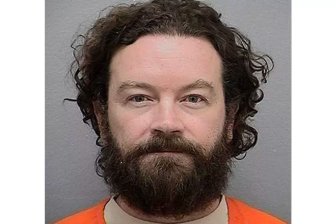A Manitoba family wants answers after their loved one, who was hospitalized with COVID-19, died hours after a failed attempt to airlift her to an Ontario intensive care unit.

Krystal Mousseau, 31, died just a day after she was supposed to have been transferred to Ottawa, her sister told Global News Thursday.
“They just told me — my mom and I — that they were going to move her because she needed more care,” Kristy Mousseau said.
Mousseau was scheduled to be airlifted to Ottawa this past Sunday, according to her family, but she didn’t make it onto the plane.

Shared Health does not disclose patient information, but on Wednesday said a critically ill patient destabilized while being loaded onto a plane for transfer to an Ontario hospital.
“The patient was provided with care by the critical care transport team and immediately returned to the sending facility. We can confirm the patient passed away the following day,” said a spokesperson.
Kristy said her family received a call at 2 a.m. Tuesday to let them know her sister had died.
She now wants to know why they weren’t given a choice about Mousseau being moved out of province.

“They didn’t even ask to move her, even ask us if we wanted her to be moved. I don’t understand. Like, why didn’t you ask?

Get weekly health news
“Krystal was stable and if she wasn’t moved or attempted to be transferred to Ottawa, she might still be here. She would have still had a fighting chance.”
In an email to Global News Friday afternoon a Shared Health spokesperson said COVID-19 patient transfers are currently happening with or without consent from the patient or their family.
“The current demand for ICU beds is such that the health-care system must look at every alternative to create capacity and continue to provide care to every patient as they present themselves,” the spokesperson said.
“As a result, Shared Health has determined it necessary, with or without patient/family consent, to move patients to facilities in other provinces to create more capacity in Manitoba.”

The spokesperson said families are “kept well informed in advance of any potential patient transfer” and clinical teams are available to answer questions and offer support.
On Thursday, while speaking with 680 CJOB News, Dr. Rob Grierson said patients are all carefully assessed by the critical care team and that detailed discussions happen between the teams sending and receiving the patient.
Grierson is the chief medical officer of Shared Health’s Emergency Response Services, and is the person who makes the final call about who is transported out of province.
“When you’re managing critical care patients, every step you take has to be carefully calculated,” he said. “There are risks associated with every step of the way.”
Questions
During question period in the Manitoba legislature Thursday, Premier Brian Pallister said a review is underway, but couldn’t say whether a critical care incident investigation will happen.
“I do agree that the answers as to the specifics of the incident, as to any potential human error or mechanical malfunction aspects for example, are addressed, and that information should be made available and be made available most certainly to the family as well,” Pallister said.
Critical incident investigations reports often reflect the seriousness and unintended harms experienced by individuals affected by the province’s health-care system.
NDP leader Wab Kinew said the family and all Manitobans deserve more answers.
“We’ve seen at least one of those attempts end with tragic results. What are we going to do right now to provide answers to that family and to try to prevent other families from having to experience heartache?” he asked.
Since May 18, there have been 28 ICU patients sent to 11 different Ontario hospitals (Thunder Bay, Sault Ste. Marie, Ottawa, Sudbury, London, Windsor, St. Elgin, North Bay, Peterborough, Woodstock and Owen Sound) and a hospital in Saskatchewan, as Manitoba continues to grapple with capacity issues.
One of those 28 patients has since returned to Manitoba after officials say their condition improved.

Questions about COVID-19? Here are some things you need to know:
Symptoms can include fever, cough and difficulty breathing — very similar to a cold or flu. Some people can develop a more severe illness. People most at risk of this include older adults and people with severe chronic medical conditions like heart, lung or kidney disease. If you develop symptoms, contact public health authorities.
To prevent the virus from spreading, experts recommend frequent handwashing and coughing into your sleeve. They also recommend minimizing contact with others, staying home as much as possible and maintaining a distance of two metres from other people if you go out. In situations where you can’t keep a safe distance from others, public health officials recommend the use of a non-medical face mask or covering to prevent spreading the respiratory droplets that can carry the virus. In some provinces and municipalities across the country, masks or face coverings are now mandatory in indoor public spaces.
For full COVID-19 coverage from Global News, visit our coronavirus page.













Comments